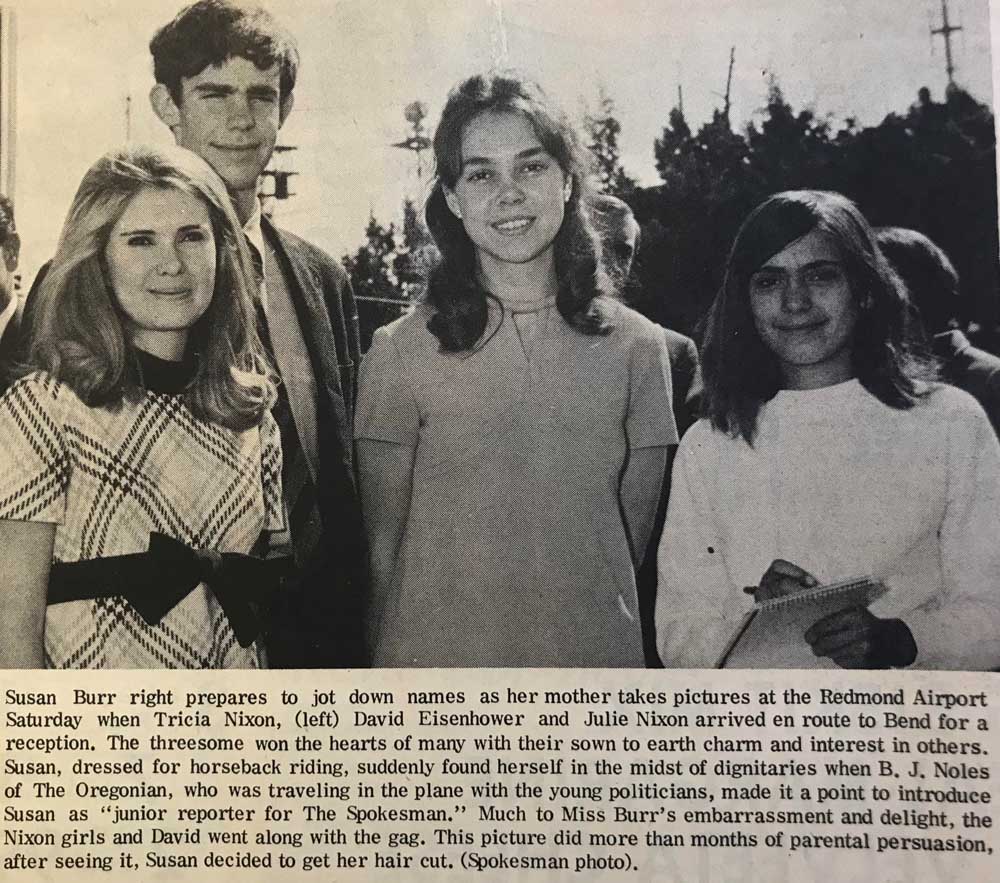Flashback: Nixon’s daughters arrive in Redmond in 1968
Published 12:00 am Wednesday, May 16, 2018

- This photo was taken at the May 18, 1968, arrival in Redmond of the daughters of former President Richard Nixon and the grandson of former President Dwight Eisenhower. It appeared in the May 22, 1968, Spokesman.(Spokesman files)
100 years ago
May 16, 1918 — Oregon home canners with a sugar allowance of 100 pounds, have the advantage of eastern householders, who are limited to 25 pounds, according to the Oregon food administration, which has announced new restrictions on the use of sugar by manufacturers.
The administration has endeavored to adopt a wise method of distribution in order to conserve the sugar supply, which has been kept down because of the lack of shipping facilities from the West Indies.
75 years ago
May 20, 1943 — Arrangements have been made whereby tobacco may be sent by communities all over the country to men serving in combat zones in any branch of the armed forces.
Details of how Redmond may participate in the plan were explained today by Ned Fields at the Kiwanis-Chamber of Commerce luncheon at Townsend hall.
All organizations in town contacted are to cooperate in the plan 100 per cent, Fields said today, and it is expected a large shipment will be made from Redmond.
50 years ago
May 15, 1968 — To further the presidential campaign of their father, Richard Nixon, his daughters, Julie and Tricia, accompanied by Julie’s fiance, David Eisenhower, will arrive at Roberts Field at 10:10 Saturday morning.
This announcement was made Tuesday by Chuck Johnson of Bend, Deschutes County chairman of the Nixon-for-President Committee. The visitors will fly from Portland in a DC-3, will be met by bus at the Redmond airport and will be taken to Bend for a 10:30 a.m. reception at the Pine Tavern. The public is invited to the gathering.
25 years ago
May 19, 1993 — For years police officers have said domestic disputes can be among the most volatile and dangerous to respond to. Thursday morning Redmond officers Mike Kidwell, Cpl. Scott Koertje and Sgt. Al Maich found out why.
And Kidwell discovered that bullet-proof vests are well worth the added weight and discomfort officers must endure in wearing them.





